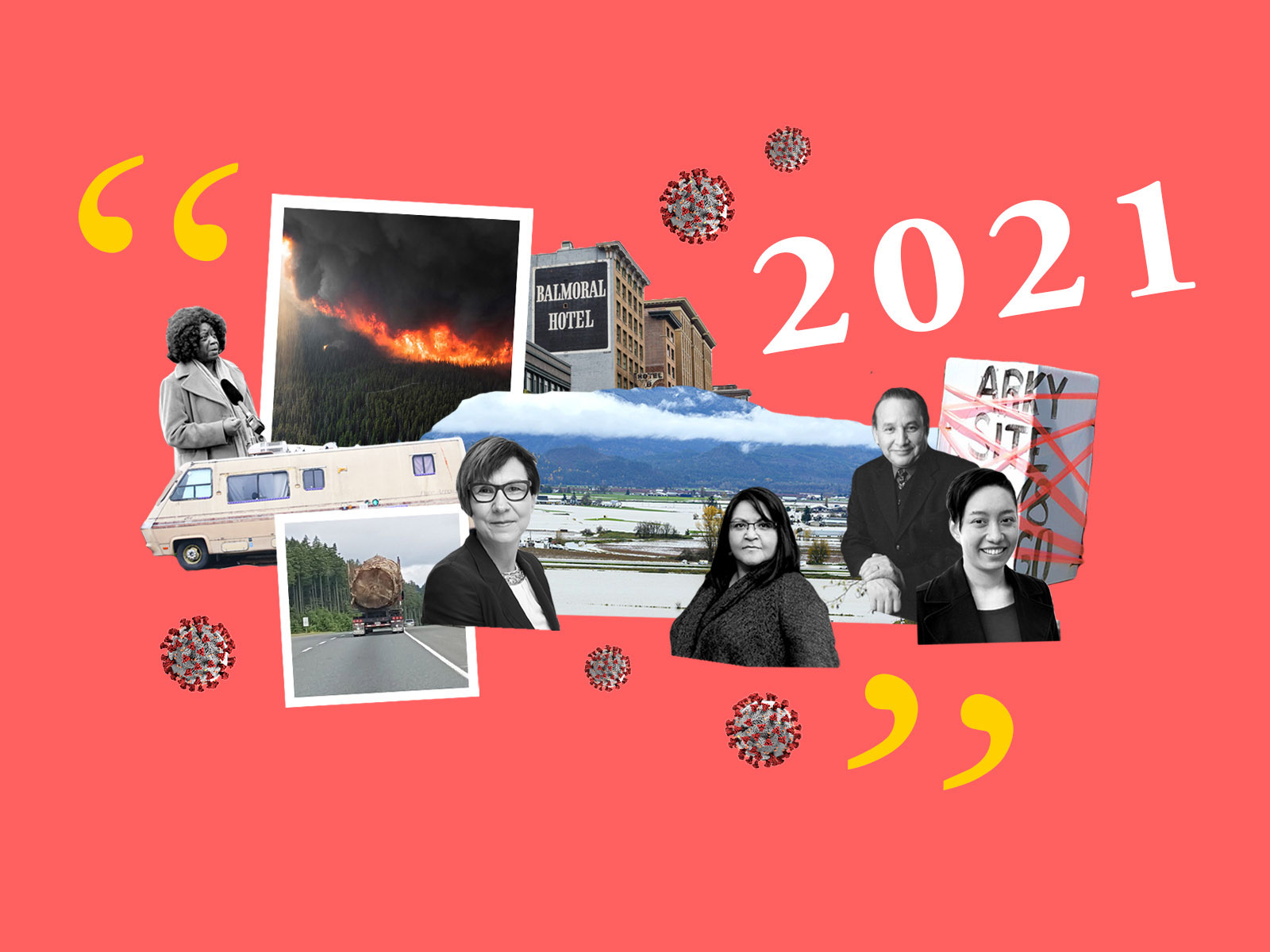With 2021 coming to a close, who better to give the last word to than our sources?
They talked to Tyee journalists about everything from residential schools, to loved ones lost to an overdose, to highways battered by atmospheric rivers, to blight-resistant tomatoes.
Without further ado, here’s a sum up of our “unprecedented times” in quotes.
January
“We spend more resources on the people that perpetuate racism and hate than we ever spend on the people who are the victims of racism.”
— Sadie Kuehn, a former Vancouver school trustee, on the need to hold the school district, police and other public institutions accountable for responding to racism.
“I was too scared to call 911 for the second overdose. I didn’t know what would happen to him."
— Jess Lamb, who revived her partner from two fentanyl overdoses a day apart.
February
“I don’t have a cushion. My retirement savings is apparently the gold teeth that I have that haven’t come out yet.”
— Stanley Woodvine, a west side Vancouver resident who’s been homeless for 16 years.
“Any COVID trip, I’m nervous because we don’t have the vaccine. We wear an N95 mask, we wear gloves, we wear the visor, but now that the nurses are vaccinated, it still feels risky for us because we don’t know if we’re protected.”
— Kieran, a porter at Vancouver General Hospital, on not being prioritized in the vaccine rollout despite working on the frontlines.
“So often, you’ll hear something like ‘Slavery: in the past, people didn’t know that was wrong.’ Well, who knew it was wrong? Enslaved people. So how are we understanding these particular narratives?”
— Historian Samantha Cutrara on revising how we teach Canadian history.
“I’m very happy to be back at work, getting paid better wages… I’m just so happy that everybody decided to come together, unite as one. That’s the only way we won the battle.”
— Murray Innes, janitor at LNG Canada and member of Unite Here Local 40, after receiving a significant pay increase and “dramatically” improved health and safety protections after signing a first contract.
March
“On reserves, we know our populations are growing at an extremely fast rate and our reserve boundaries are what they are. Historically, we never would have settled in an area that would flood on a regular basis. If it was a high-water time, we would have been able to move to alternative areas. Nowadays that’s not a possibility. We can’t say, ‘We’re going to move the Semiahmoo reserve from A to B because: one, A is our home; and B, there is no B.’”
— Chief Harley Chappell of the Semiahmoo First Nation on how rising sea levels threaten what reserve territory they have left.
“It feels like it’s been a decade in a year? So lately I’ve mostly been watching the Perseverance rover, the little guy on Mars. He’s cute! I loved the pictures and live streams, seeing all the people who worked on that mission so relieved and happy. Also, a lot of cat videos.”
— Eden Robinson, author of the 'Trickster' trilogy, on her media diet.
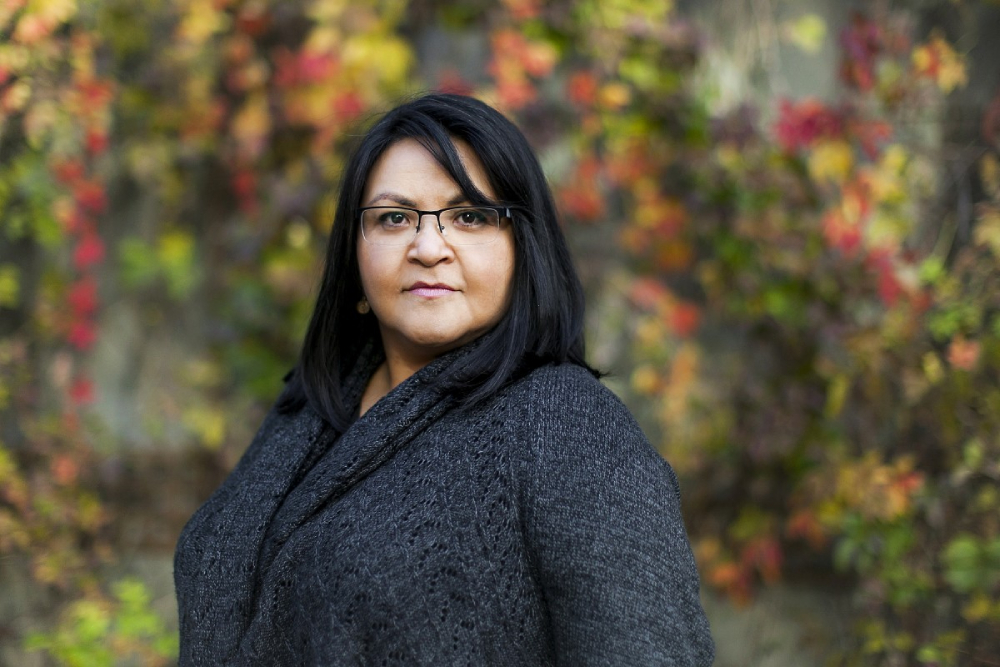
April
“He was super dad — he was our hero. He taught us how to do everything. He taught us how to skate, he taught us how to play sports, he taught us to be powerful, to be strong — but not in an egotistical way. He was a really naturally loving, naturally devoted, caring person.”
— Aja Sayers on her father Alan Sayers, a prolific Downtown Eastside artist who died in March at age 63 because the crack he’d smoked was contaminated with fentanyl and carfentanil.
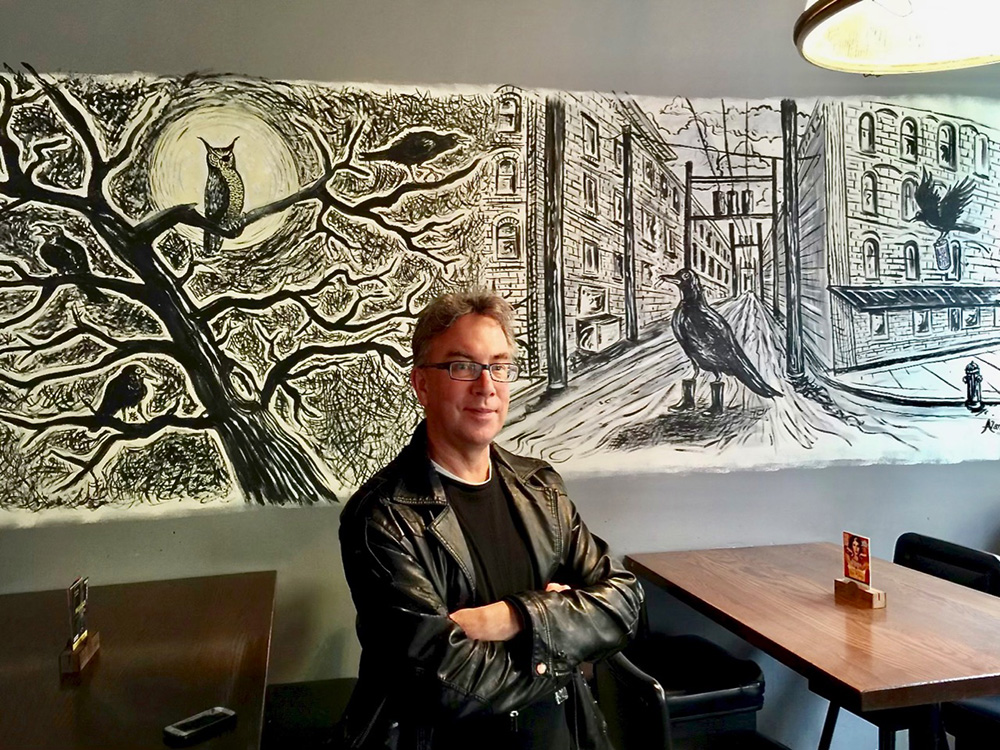
“Why don’t people recognize that not everyone has the opportunity and privilege to learn English? Why is that when a primary English speaker speaks an ‘ethnic language’ it’s celebrated, but for people for whom English is their second or third language, they don’t get the same credit?”
— Kevin Huang, executive director of Hua Foundation, on language discrimination and the lack of adequate language supports during the pandemic.
“When I started teaching in the ’70s, there were also two other groups that wanted to recruit at secondary schools, and they were the military and the KKK, and both of course were stopped immediately.”
— Barb Parrott, Vancouver School Board trustee, on the school liaison officer program.
May
“We hear all about they’re wanting to log old growth, and you think, ‘That really sucks, it’s not a great idea,’ but when you actually see a tree like that on a truck, it’s beyond imagination…. You can’t ignore it. It’s so in your face.”
— Lorna Beecroft on the giant tree on the back of a truck near Nanaimo she photographed in May. The photo would go viral, a symbol of the ongoing battle over old-growth logging in B.C.
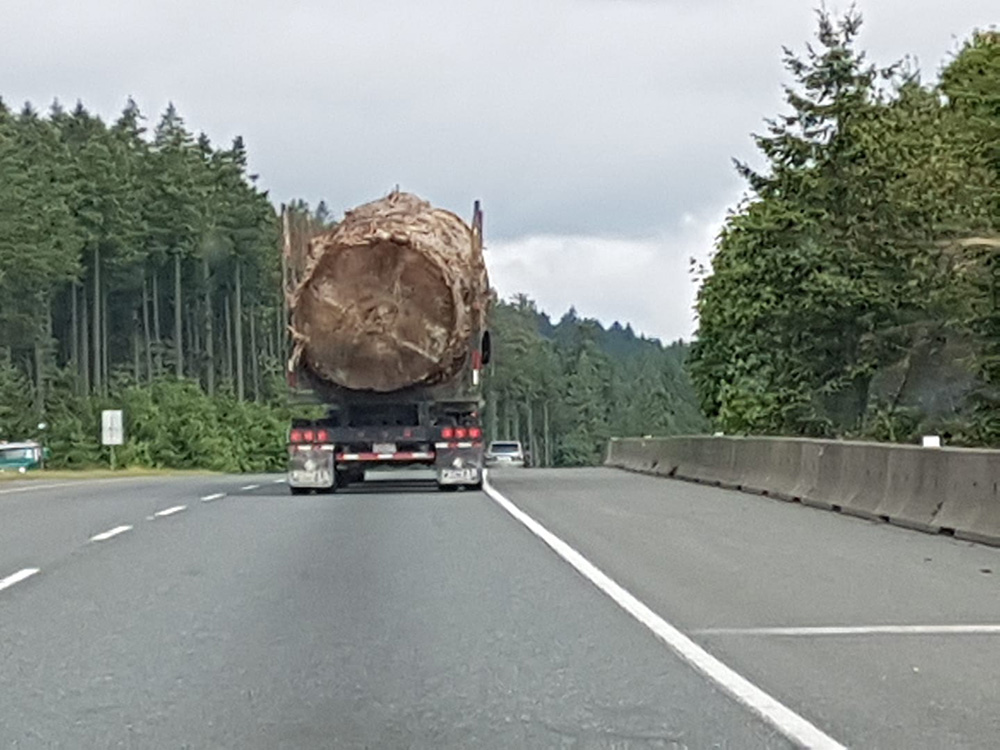
“They don’t say, ‘Oh, because you’re Indigenous, we’re going to pretend that you’re looking to get high off pills.…’ So it’s hard to tell, exactly, whether they’re just generally assholes or racist assholes.”
— Joanne, a member of the Wet’suwet’en Nation, on anti-Indigenous racism in B.C.’s health-care system. (Name changed to protect private health information.)
“I left my penthouse in West Van. I had 2,500 square feet, three balconies overlooking the water by the beach. I worked my balls off my whole life.... Then when I got home, I would get in trouble for going up the elevator because I was tired, and my boots clunked. You know, if you fart, the cops are banging on your door. I was paying $3,500 a month. It was a lot of money. So I say, I can’t do this anymore. I left it, knowing I wanted to live in a motorhome. I wanted to do it for a long time. And now that I’ve done it for five years, I want to do it for another five years.”
— William Cook on why he loves the RV life, even during Vancouver’s crackdown on RVs.
June
“My heart goes out to the survivors. My heart goes out to the children of survivors and the families of survivors who never made it back. I know this is a hard time, but we must persevere. We must persevere in our continued investigation of what we need to know about these schools.”
— Murray Sinclair, former chair of the Truth and Reconciliation Commission, after the discovery of 215 children buried in unmarked graves at a former Kamloops residential school.
“What we’re talking about here is $40,000 for a lost childhood or a child’s lost life. And if the prime minister thinks that’s too much money, the question for him is: how much money does he think a child’s life is worth?”
— Cindy Blackstock on the federal government’s refusal of a tribunal order to provide compensation to each First Nations child who had their medical treatment denied or delayed by government, or who was taken away from their families for reasons other than abuse.
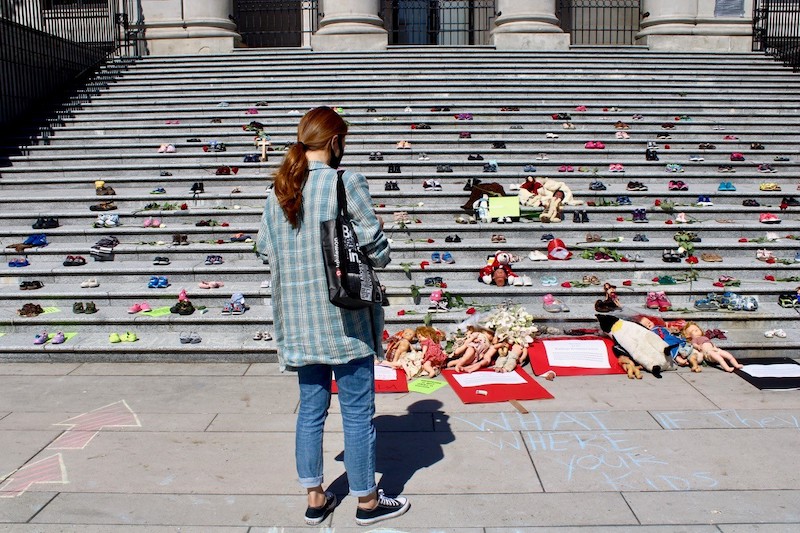
“There’s only a matter of time until there’s nobody left alive.”
— Laura Shaver, Providence Health’s peer navigator for opioid agonist therapy, on the devastating death toll of toxic street drugs.
“No disrespect to the protesters, but it’s all about emotion…. It’s about balance and it’s about the impact deferrals have on communities and workers and the ability to make a living. That’s my emotional response.”
— Jeff Bromley, chairperson of the United Steelworkers Wood Council, on the protests against B.C.’s policies on old-growth logging.
July
“He texted around midnight, saying ‘I can’t stay any longer, everything is burning, and your house is gone.’ It’s been hard. When you’re in your 70s, you don’t want to be having to start from a suitcase again.”
— Bill Drinkwater on losing his home in Estamont, B.C., to wildfire.
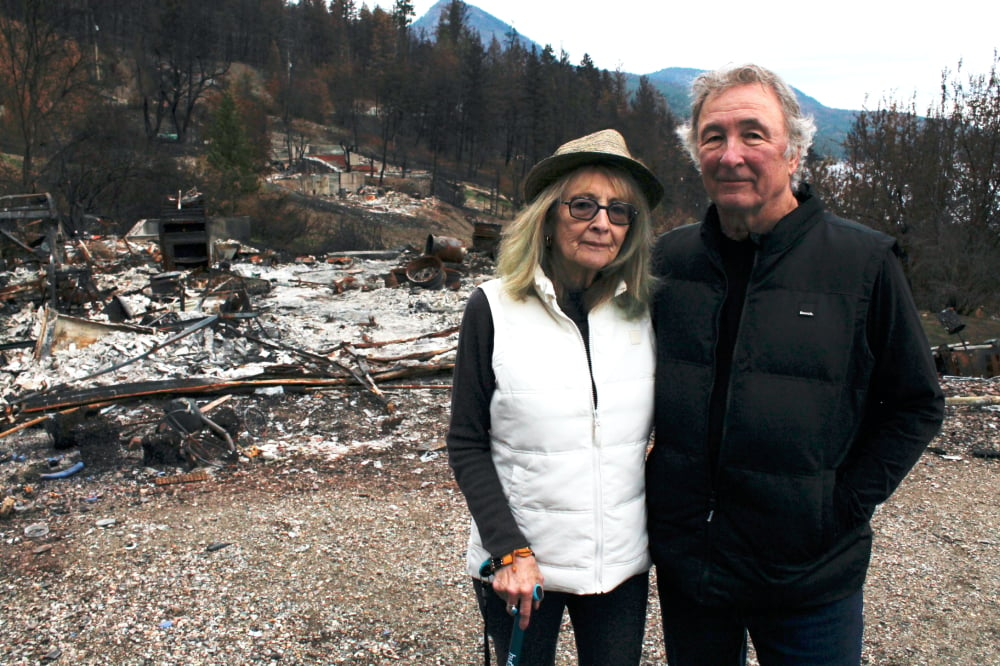
“One year that I grew out 300 different kinds of tomatoes, there was a very bad blight. And only a couple of tomato varieties survived it. So there you go: there’s your opportunity to save blight-resistant tomatoes.”
— Dan Jason, author and owner of Salt Spring Seeds, on saving the seeds of resilient crops.
“If we all collectively understood our vulnerability, is there the ‘other?’ Do all the -isms, like ableism and racism and sexism, even exist? Because then we know all the vulnerability could be us.”
— Madeline, who has complex mitochondrial and post-viral conditions. B.C.’s medical system doesn’t properly recognize her illness, which affects about 77,000 British Columbians.
August
“Our people and our lands and waters are all connected. The province is burning down, the water’s drying up, and we’re still clear cutting old-growth forests when they do so much for regulating the climate and protecting water.… What’s really needed is reciprocity. It’s time to give back. The people and the land need to heal.”
— Kuuyang-Lisa White, owner of Gin Kuyaas Haida Art Studio and Gifts and member of the Old Massett Village Council, on the loss of Haida Gwaii’s ancient forests.
September
“This is legal evidence of our title. If they come and destroy this, they’re wiping us off this territory. They’re erasing the evidence of us being here. So, it’s really important that it’s protected.”
— Molly Wickham, Sleydo’, Gidimt’en spokesperson, on a ridge that’s an important Wet’suwet’en cultural site, and is at risk due to B.C. allowing Coastal GasLink to obliterate the site for pipeline construction.
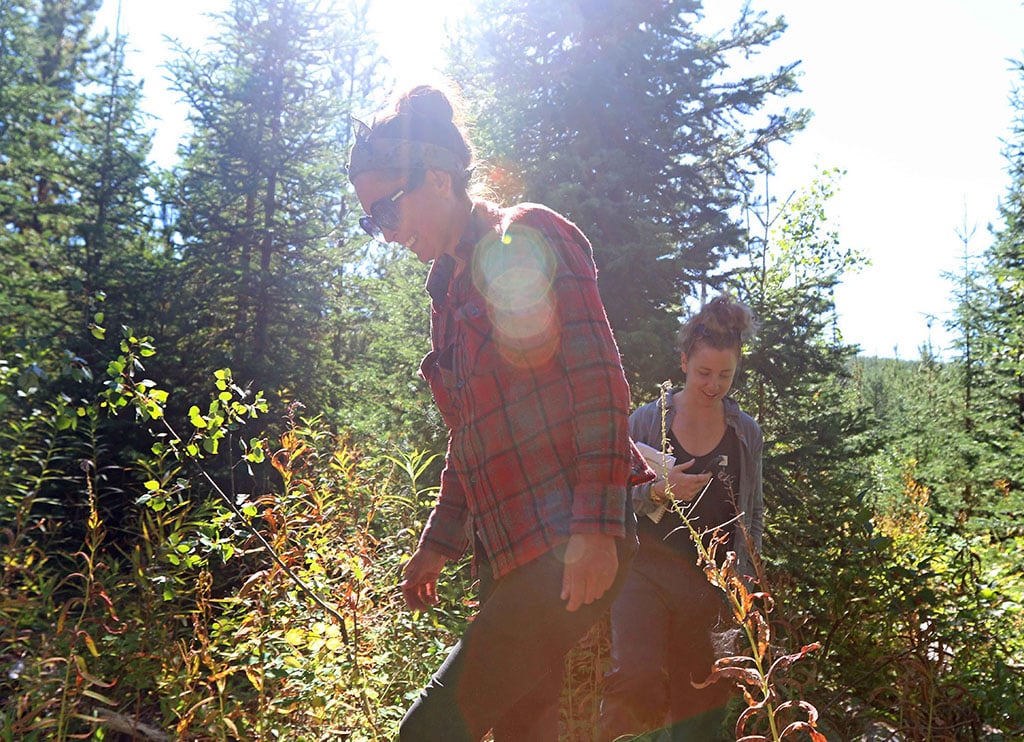
“I’ve never been to a wildflower barbecue.”
— Gail Fleming, a 42-year resident of Lasqueti Island, on the sustenance-related benefits of the local feral sheep, who have a tendency to eat the local flora, but who also sometimes make for a good lamb dinner.
October
“We’re going to run this program by hell or high water, because it will save lives. We’re a radical organization. We don’t need state sanctioning — but it helps.”
— Eris Nyx, a founder of the Drug User Liberation Front, on handing out packages of tested and labelled heroin, cocaine and methamphetamine in the midst of B.C.’s deadly overdose crisis.
“Gas released when you put a hole in the side of an LNG tanker doesn’t float magically up into the air. It stays close to the ground and forms a low fog that’s very flammable the further out you go. It would catch fire and cause not an explosion, but a firestorm.”
— Eoin Finn, a researcher with My Sea to Sky with a PhD in physical chemistry, explains what would happen if an LNG tanker should leak.
“The police’s job is to protect the peace — that’s their role. But what they’re carrying out is a kind of civil war against protesters, where the danger to public peace is from the actions of the police themselves.”
— Martin Peters, a Vancouver criminal lawyer, on the Fairy Creek blockades.
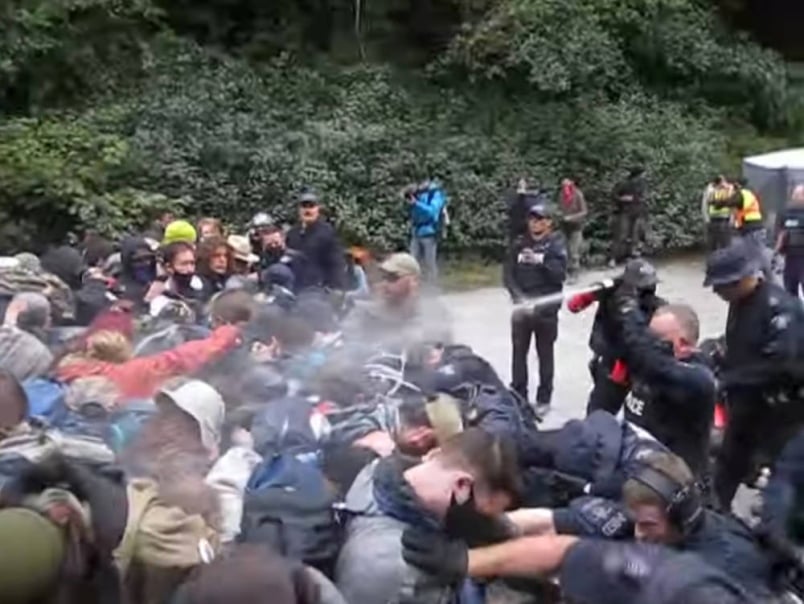
November
“What we heard from the Horgan government yesterday is what I describe as a typical Horgan government political soufflé announcement — inflated and crispy on the outside, soft and fluffy on the inside.”
— Grand Chief Stewart Phillip of the Union of B.C. Indian Chiefs on the province’s announcement to potentially defer 2.6 million hectares of old-growth forests from logging pending First Nations’ approval, with no financial supports to compensate nations for the potential revenue impacts of those deferrals. On the colourful quote, Phillip explains, “Soufflé comes from the French word souffler and, and souffler means to inflate. So I thought it was appropriate.”
“I don’t even pet dogs anymore, because I feel so hollow.”
— Emily on how taking the antidepressant Citalopram gave her PSSD.
“You’re inviting individuals to sit at a table that is not constructed for them… and what you have to do is change that table so that it’s actually one that’s collectively created by everybody, no matter their background.”
— Amita Kuttner after becoming interim leader of the Green Party of Canada.
“That drive between Princeton and Hope was really the most terrifying drive I’ve ever done in my life. It was white knuckle. The rain was really coming down. There were cars on the side of the road. There were points in the highway where water was streaming across.”
— Enda Brophy on getting caught on Highway 3 in the middle of atmospheric river rainfall.
December
“We rode the canoe through the front door and out the patio doors to the lakeside.”
— Debbie McKay, management board member of the Everglades Resort RV park in Mission, on a 1970s flood. She’s experienced six floods since her family moved to the resort in 1969.
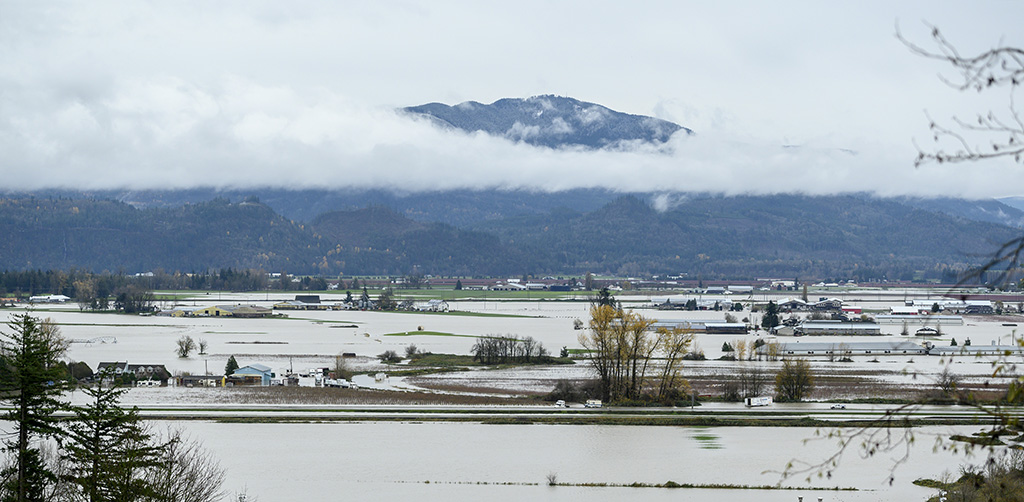
“I’m not trying to be dramatic when I say racism kills people. Because they stay away from health care that they need because it’s been so offensive, unfriendly and discriminatory, and it can lead to an absolute crisis, including a shortened lifespan.”
— Mary Ellen Turpel-Lafond on anti-Indigenous racism in B.C. health care.
“We can’t claim that we didn’t know the ravages of capitalism and colonialism. So now that we know, what do we do about it? If you hold a position of power, you better be using that power to challenge power. If you’re a progressive politician, you better be doing everything in your power to change power. If you’re a community organizer, you’re probably doing this already. But you have to find ways to bring new people along. If you’re waiting for someone else to do this stuff, it’s not going to happen. The system requires us all to be isolated and refusing to be in any contact with one another. We need to refuse that. Wherever you’re located, you should be building that community, however you can.”
— Nora Loreto, author of 'Spin Doctors: How Media and Politicians Misdiagnosed the COVID-19 Pandemic.'
Special thanks to Tyee journalists Amanda Follett Hosgood, andrea bennett, Andrew MacLeod, Christopher Cheung, Jen Osborne, Jen St. Denis, Katie Hyslop, Michelle Cyca, Moira Wyton, Sarah Krichel and Zoë Yunker for taking down these quotes.
Happy holidays, readers. Our comment threads will be closed until Jan. 3 to give our moderators a break. See you in 2022! ![]()
Read more: Media



